At 1400 on August 2, we pulled anchor and headed south for Fulaga, (pronounced ‘Fulanga’) one of the smaller and more remote islands of Fiji. At 7 knots, the 125 nm trip took us about 18 hours. We could easily have gone faster but this rate got us to the pass outside the reef at about 8am. We waited until about 9am, watched another boat go in, and then went through. The tide was going in and there were 3 to 4 ft standing waves in one area but Peggy was able to navigate around this with me up front spotting.


As you can see, the pass is long and narrow. The current was flowing in at about 2 knots, and we need to be moving faster than the water by about 3 knots to have good steerage control, so we were doing at least 5 knots. That’s not a problem if you stay out of trouble and don’t hit anything.
Peggy brought us through with no problem and we quickly found our way to a beautiful anchorage with quite a few other boats, many of which were friends from previous anchorages.
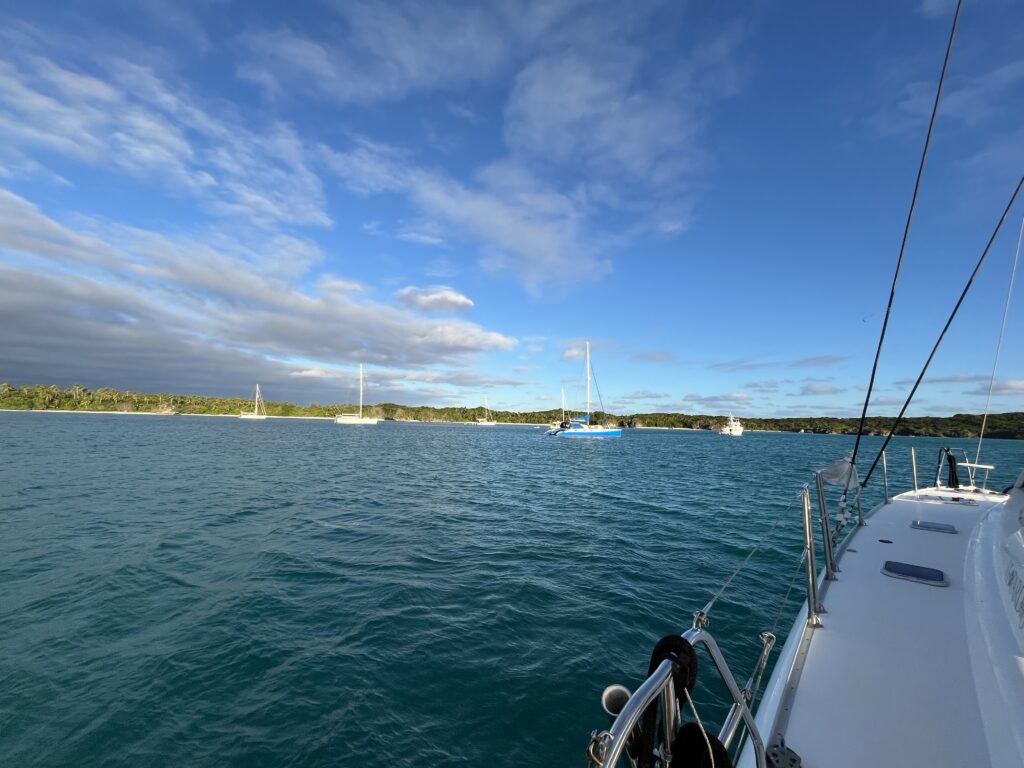

It was a lovely anchorage, but it was quite a ways from the main town of Monothaki. The dinghy ride took over 20 minutes each way (red line). We went into town with several other cruisers and did sevu-sevu.
There are about 20 families in Monothaki. They mostly fish, raise chickens and pigs and do some farming, growing banana, breadfruit, papaya, mango, sweet potato and some greens. A number of the men are also wood-carvers, including Jonny. Each home has it’s own electrical system of solar panels, and a car battery, with some also having a generator. Cooking is done on a wood fire and water comes from a well. The homes are mostly wood poles lashed together with corrugated metal for walls and roof.
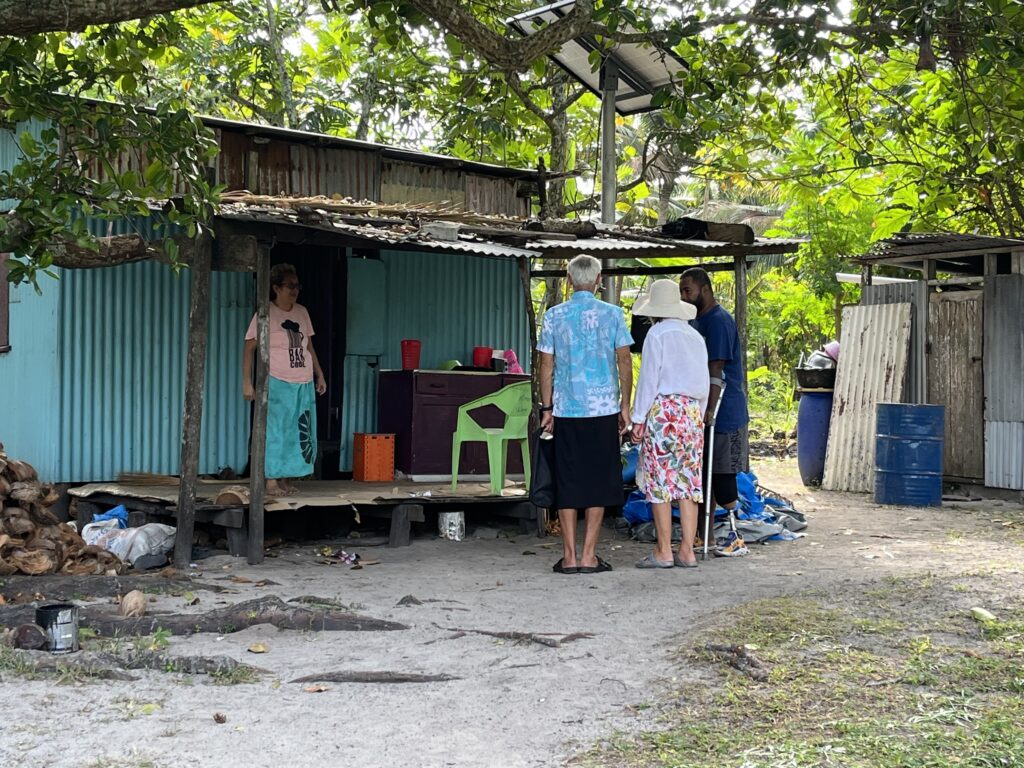
This village has a system where the head-man assigns a host family to each boat. The assignment rotates so that all the families have the honor and responsibility of hosting. Our host family was Jonny, his wife Merry and their 4 year old son Bapti. Jonny was pretty busy but we spent a lot of time with Merry and Bapti over the next few days. Merry is the kindergarten teacher and Bapti is in pre-school. Merry speaks good English. Jonny understands pretty well but doesn’t talk much. Bapti communicated mostly with gestures and smiles.
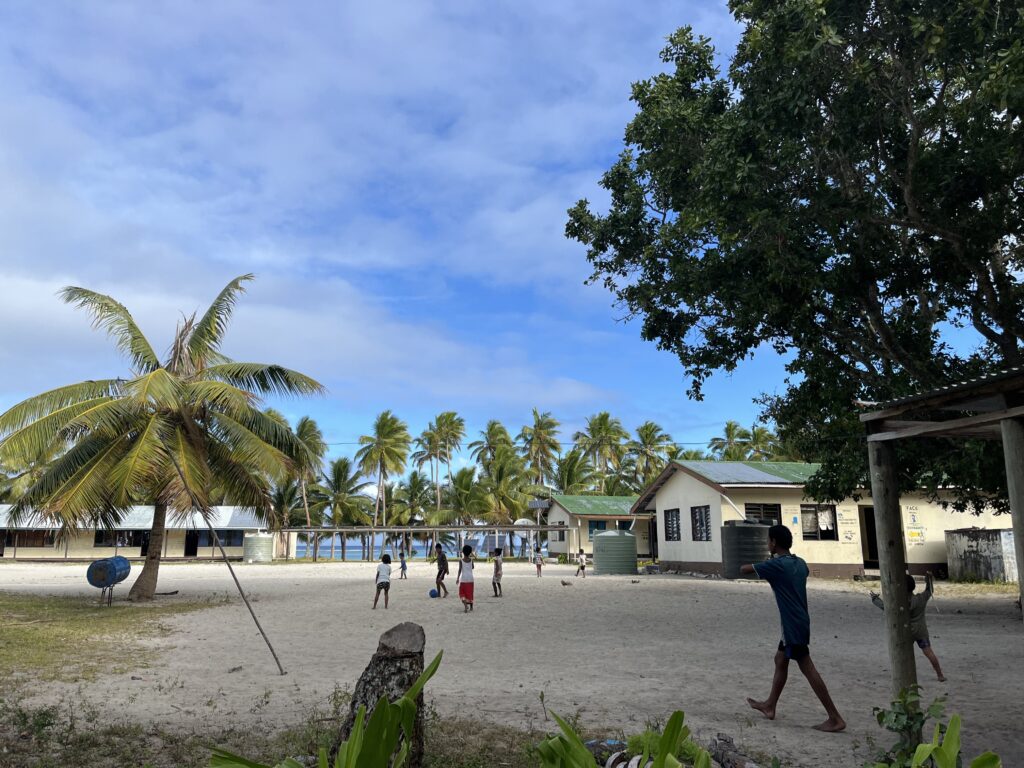
August 4 was Sunday and we were invited to attend a memorial feast. Jonny’s aunt had passed away a few weeks earlier and everyone was celebrating her life.
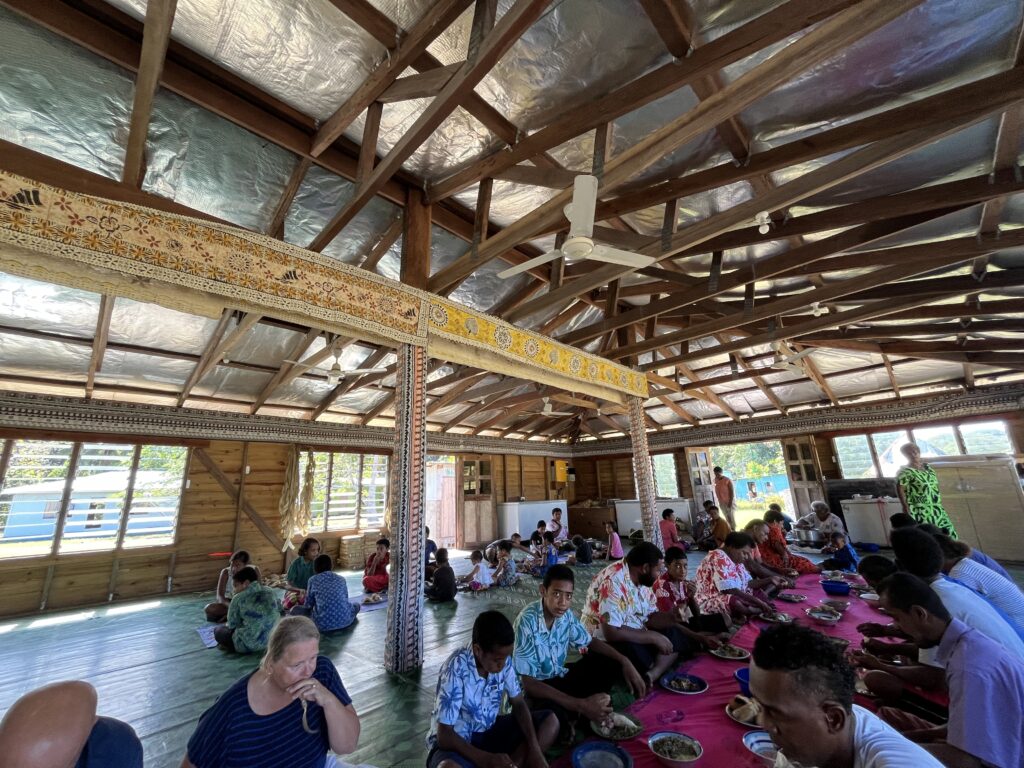
There was lots of food and everyone seemed to be in good spirits. Not a somber event like memorial services often are in the US.
After the service we invited Merry and Bapti to Calista for an early dinner. While Peggy and Merry talked and worked on the food, Bapti found my tools and we had a great time going through them and showing him how they worked. For a four year old, he has a very good sense of tools and their use. We had a lot of fun!
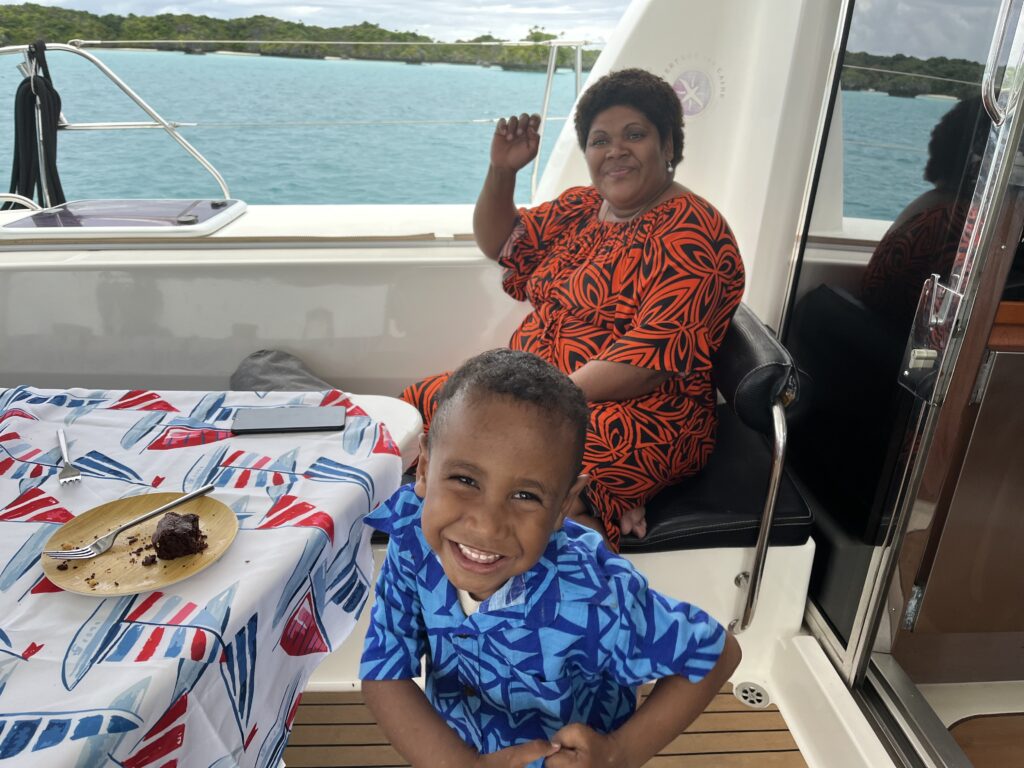
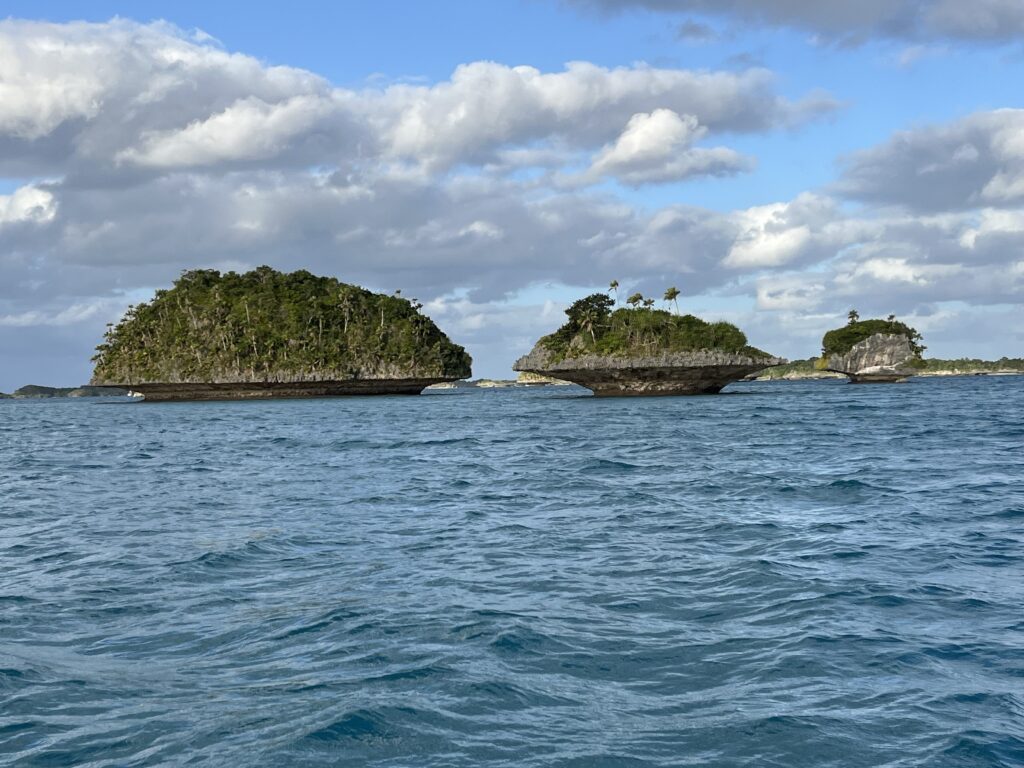
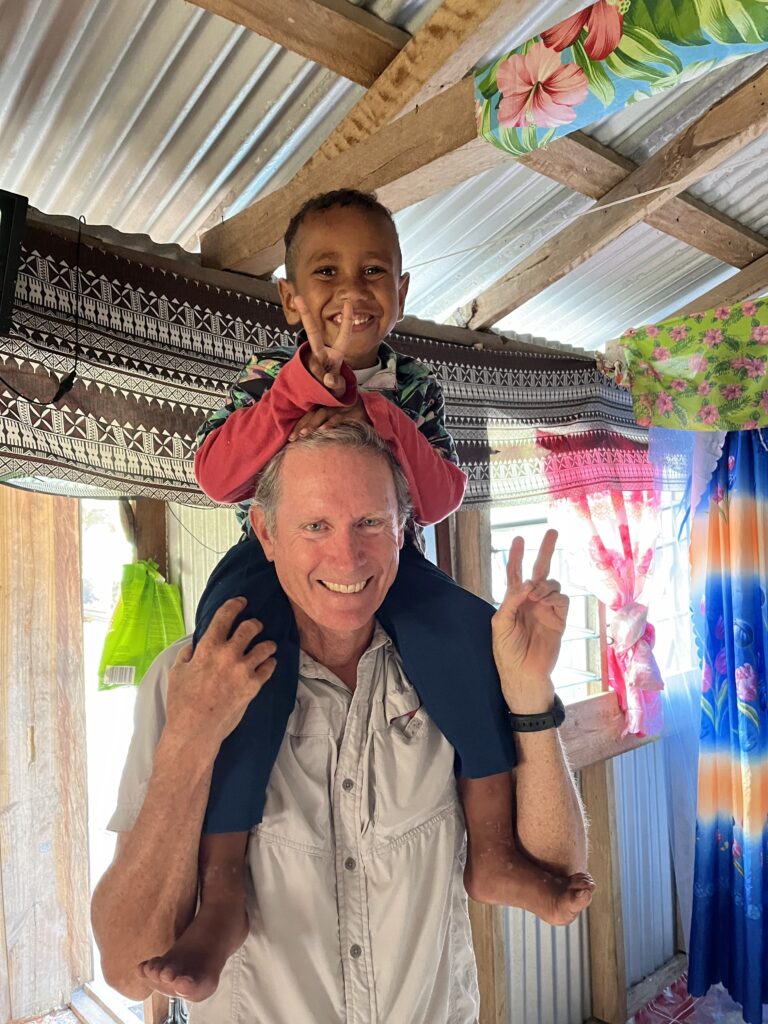
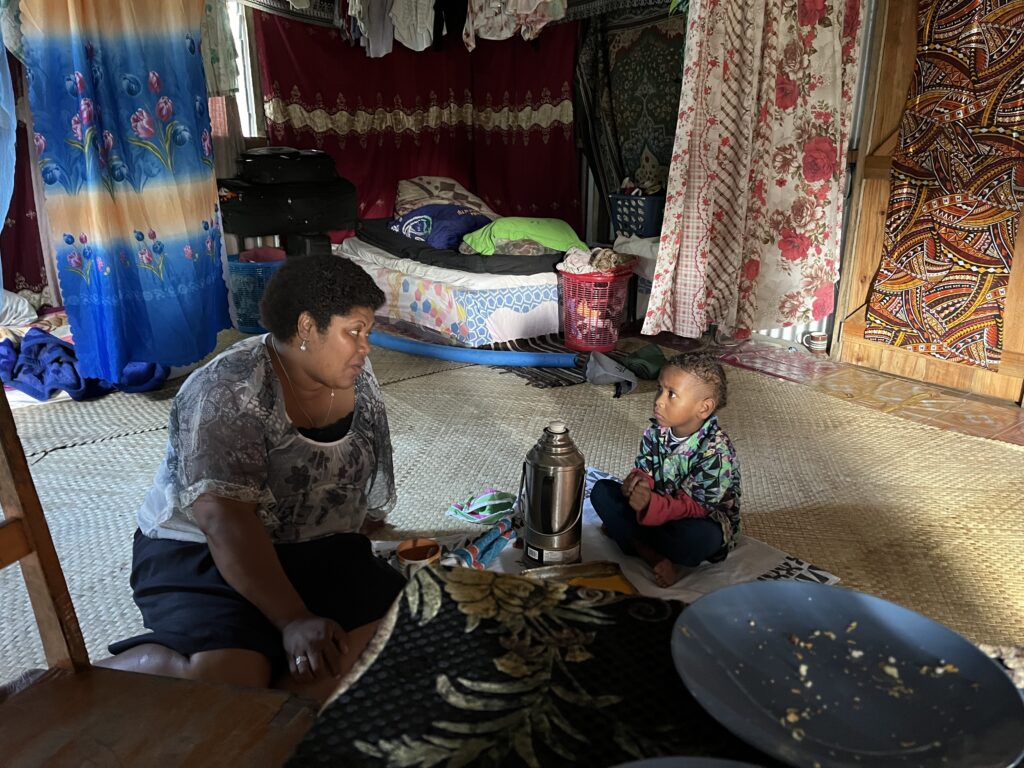
Bapti is a very active kid. Lots of smiles and fun, but occasionally his mom would sit him down and explain why something he had done was not right. You can see that he takes these talks seriously.
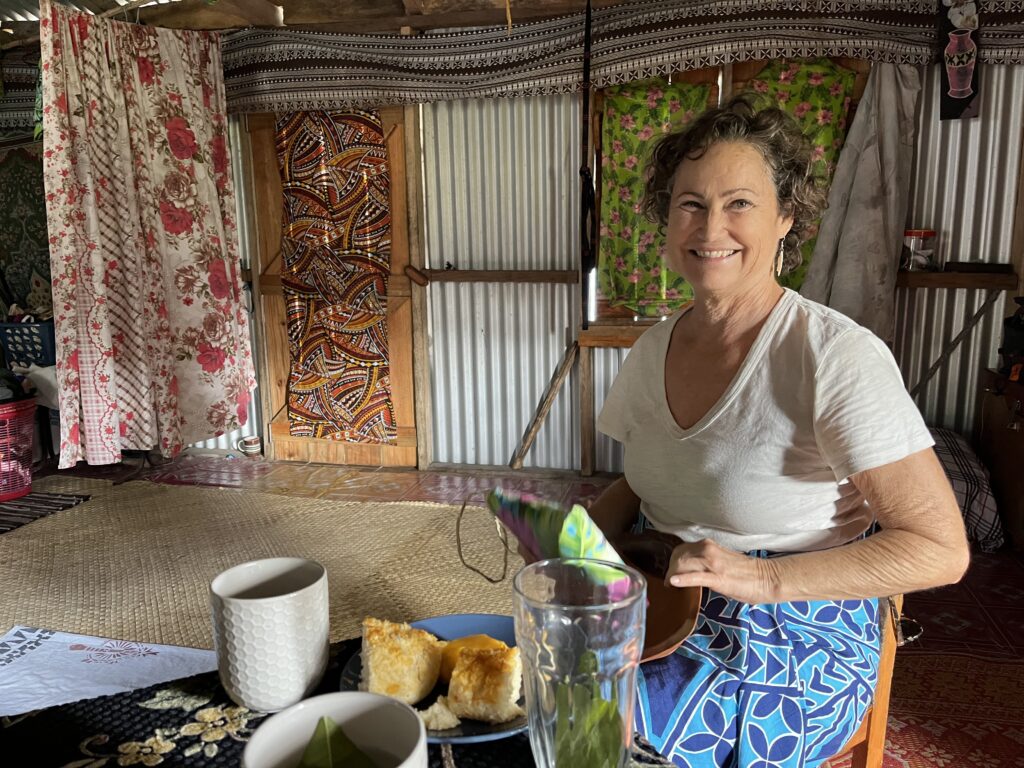
Merry always served us either lunch or some tea and cake. The tea is from leaves of a local bush that they pick and dry. The cake was often something like a cheese bread.
On Aug6 we had a picnic cook out with Jonny, Merry, Bapti and several of our cruiser friends. Jonny showed us how to cook breadfruit in a pit and he grilled some fresh fish for us. Peggy had fun teaching Bapti to swim. He had been afraid of the water but Peggy made a game out of it and he was all smiles, pretending to be a turtle.
Fulaga is a great example of life in a small, isolated village in the South Pacific. No cars, very little technology other than smartphones. Everyone really does know everyone and the children really are raised by the community. They all look out for each other and know when someone not from the village is around. There is almost zero crime and if something goes missing, it doesn’t take long for people to figure out what happened.
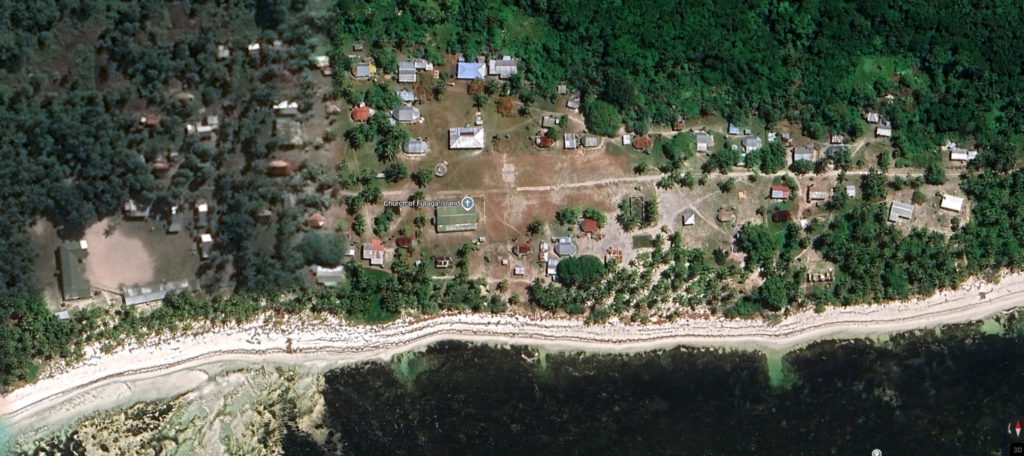
Nobody is rich, but everyone has a home and food on the table. The land and water provide most of the food they eat, but not without effort. Fishing, raising chickens, keeping gardens and harvesting fruit all takes work. They have many community events and are a very religious (Christian) people. Their life may not be as fancy and exciting as people in the cities, but they do seem to be more happy.
It’s hard to say what the future holds for these communities. They have a good life and could continue as is, but there are many pressures from the outside world. Teens are away for months at a time for High School in one of the cities on the two big islands and some never return. Many young adults move away, lured by what they see on facebook, YouTube or TikTok, and by better and more varied job opportunities. The population has been slowly declining in these villages over the last 40 years. It will be a real shame if something can’t be done to turn that around.
On Aug8 we left Fulaga for Kadavu where our friend Trina would join us!
thanks for the updates from both of you! I had to think i would be happy too if Pat could carry me on his shoulders around the island , what a great way to see it – but Pat would probably be a cripple afterwards since I am pretty heavy!
I also thought it was interesting that there is very little technology there but at the same time they have smartphones? are they really expensive over there and how can they afford to have those, a lot you can do with them but is it all really worthwhile?
Keep on sending updates !
Alan
Hope you’re both doing well. Thank you so much for this insight into life in beautiful Fulaga. Tremendously interesting! I agree that it would be great if population decline can be turned around – a widespread challenge faced around the world, as people move to larger cities, and of course as population growth in many regions drops below the necessary replacement rate. I’m glad you continue to have a great voyage and adventure. Silvia and I always look forward to reading your updates and to see your lovely photos
Take care, Happy Holidays and hopefully see you soon, somewhere!
Andy